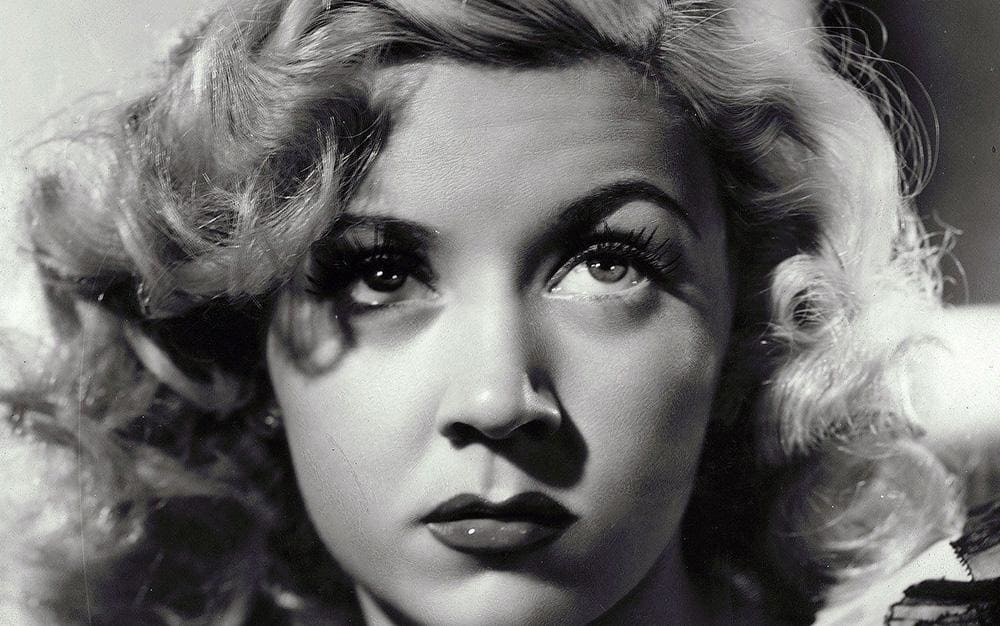 A couple of weeks ago I was part of an all-female panel discussion of the treatment of older women in Hollywood. The discussion followed a screening of the recent Paul McGuigan biopic Film Stars Don’t Die in Liverpool which charts the relationship between ageing Hollywood star Gloria Grahame and younger British actor Peter Turner.
A couple of weeks ago I was part of an all-female panel discussion of the treatment of older women in Hollywood. The discussion followed a screening of the recent Paul McGuigan biopic Film Stars Don’t Die in Liverpool which charts the relationship between ageing Hollywood star Gloria Grahame and younger British actor Peter Turner.
I enjoyed the film very much and was excited to be asked by marketing assistant and my PhD supervisee, Becky Jones, to be part of the discussion event at the wonderful Phoenix cinema in Leicester.
The film itself was very good, beautifully shot and both Benning and Bell’s performances were excellent. It also raised a number of issues around the idea of the ageing female star and the broader treatment of women in Hollywood which really seemed to chime with the recent Weinstein allegations and the public debate around the #MeToo campaign.
I knew that our panel discussion would only be brief as it was being held on a week night and people probably wouldn’t want to stay late after the film but nevertheless I took the opportunity to re-read Peter Turner’s source novel, refresh my knowledge of Grahame and catch up with her back-catalogue of work in case I was asked an obscure question by a member of the public.
To be fair I didn’t need much of an excuse. I have loved Grahame’s work for a long time. The Big Heat (1953) is certainly in my top ten films of all time and has been since I became obsessed with film noir in my early twenties and watched my way through as many classic noirs as I could find in the university film library. Grahame’s complex portrayal of sassy yet vulnerable gangster’s moll Debbie was absolutely key to my enjoyment and engagement with the noir genre. The scene featured below is one of my favourite film scenes of all time. Expected to be glamorous and frankly, mute, Grahame’s Debbie actively resists, living her life on her own terms, even in the face of the horrendous brutality metered out to her by her gangster boyfriend. The Big Heat might have ostensibly been Glenn Ford’s revenge narrative, but for me Debbie was the hero.
Despite this, in Film Stars Don’t Die in Liverpool Peter’s father (played by Kenneth Cranham) says that Grahame was ‘a man’s actress’ and by this he presumably meant that she starred mostly in film narratives aimed primarily at male audiences, and as such she was intended as window dressing rather than protagonist. In this respect then, Grahame stands in contrast to her peers such as Joan Crawford, Bette Davis and Barbara Stanwyck, all ‘Women’s stars’ who appeared in ‘women’s pictures’ aimed primarily at female audiences. As my colleague Matthew Jones observed in his question to our panel, these ‘women’s stars’ were and still are celebrated as proto-feminist models of agency and talent, whilst Grahame remains largely overlooked.
Herein lies the issue with Grahame, if it wasn’t already apparent, she was awkward. As an actress and in her personal life, she didn’t fit the mould. Having signed her up, MGM struggled to place her in films before loaning her out and despite her ability and her training, despite delivering incredibly charismatic and affecting performances in an impressive back catalogue of films and despite her even winning an Oscar, Grahame’s stardom and skill is still consistently overlooked. Presumably this is because she wasn’t the ‘main event’ in her films and possibly also because she often played trashy, tarty women often negotiating perilous ‘men’s’ spaces and I would argue that these portrayals fed into her broader public persona as a troublesome woman who had fiery personal and working relationships and an at times inappropriate penchant for much younger men.
As my colleague and fellow panellist Alissa Clark observed though, Grahame is notable for her consistent, slow, careful and skilled work in the background of film narratives. Like many women in Hollywood, her labour is taken for granted and overlooked whilst her function is intended to be ornamental, she is either motivation or an assistant for the protagonist. Yet there is a real depth and complexity she brings to her performances (something that resonated so strongly with me in The Big Heat) and as both the book and the film versions of Film Stars Don’t Die in Liverpool demonstrates, and as my third and final fellow panellist Laraine Porter observed, Grahame clearly felt continually frustrated and constrained by an industry that valued, and (as the Weinstein allegations are consistently highlighting) still continues to value women for their youth and attractiveness over anything else.
As such her reappraisal through this film and her representation by one of Hollywood’s most well-known and respected actresses (as Benning herself now enters a more mature stage in her career and presumably faces the same issues around becoming invisible that Grahame fought so stridently against) is so very significant. People have previously asked me why it is that I study stars and why they matter. For me stars like Grahame and what they signify tell us so much about broader society and its attitude to women, and her pouting, wisecracking tenacity in the face of this sustained assault, is really inspirational.
